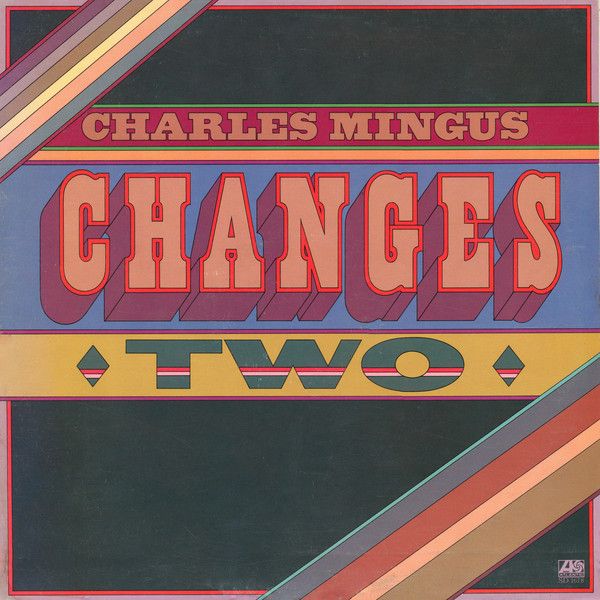Welcome to Night Lights… I’m David Brent Johnson. Throughout the history of jazz musicians have often recorded tributes to other jazz artists who have passed away, and on several previous Night Lights programs I’ve featured some of those compositions. In the next hour we’ll hear more such music, with an emphasis on recordings made in the 1970s and 80s in tribute to Rahsaan Roland Kirk, Bill Evans, Jaco Pastorius and others, performed by Miles Davis, Woody Shaw, Charles Mingus, Pat Metheny, and others. It’s “Turn Out The Stars Volume 6”… coming up on this edition of Night Lights.
Jaki Byard, “GEB Piano Roll” (4:32)
Pianist Jaki Byard performing a composition of his called “GEB Piano Roll,” recorded live at the Keystone Korner in San Francisco, California in August of 1979, from the album THE LATE SHOW: AN EVENING WITH JAKI BYARD. Byard had debuted that tune in the 1960s, and it was described by liner note writer Mark Gardner as “a tribute to three young men, colleagues and personal friends of Jaki’s, who all died far too young—George Tucker, Eric Dolphy, and Booker Little.” Their first names form the acronym in the title of Byard’s composition.
If you’re a musician, it might just be natural when another musician whom you admire passes on to decide to honor that musician with… music. Certainly that’s been the case throughout the history of jazz, and there are so many jazz elegies that this is the sixth Night Lights show to feature them. On this episode I’ll be focusing on recordings that were made in the 1970s and 80s, and I’m going to start with an artist you may not have heard of—saxophonist and sometime flutist Frank Strozier, who was part of a highly-talented group of artists such as pianist Harold Mabern and saxophonist George Coleman who emerged from the mid-20th century Memphis jazz scene, and who can be heard along with Strozier in the Night Lights program “The Memphis Mafia” at wfiu.org/nightlights. Strozier retired from the jazz scene in the 1980s, not long after recording an album with Mabern called What’s Goin’ On, after the Marvin Gaye tune that Strozier covered on it. Strozier also penned musical tributes to two fellow jazz artists who died young—one for Oliver Nelson, who had died in 1975 at the age of 43, and whom Strozier called a friend… the other for John Coltrane, who had died in 1967, age 40, but whose enduring influence was already apparent when Strozier made these recordings. Here’s Frank Strozier and “Ollie,” on Night Lights:
Frank Strozier, “Ollie” (4:30)
Frank Strozier, “Psalm For John Coltrane” (6:41) (total time: 11:11)
Two jazz elegies from saxophonist Frank Strozier’s 1978 album What’s Goin’ On—we heard “Psalm For John Coltrane” and before that “Ollie,” written in memory of composer Oliver Nelson. Strozier accompanied by Danny Moore on trumpet, Harold Mabern on piano, Stafford James on bass, and Louis Hayes on drums.
Around the same time trumpeter Woody Shaw was making an album for Columbia, not long after multi-instrumentalist and Rahsaan Roland Kirk had passed away at the age of 42. While many jazz elegies are ballads, the tribute that Shaw recorded for Kirk on his album ROSEWOOD is in a more swinging vein. We’re also going to hear a tribute from Miles Davis to Jaco Pastorius, whose innovative bass-playing both as a leader and a member of the group Weather Report influenced many bassist who followed him in the 1970s and 80s, and up to the present day. Pastorius died at 35 in 1987, and Davis recorded Marcus Miller’s composition “Mr. Pastorius” not long after, for the 1989 album AMANDLA. First, here’s Woody Shaw and “Rahsaan’s Run,” on Night Lights:
Woody Shaw, “Rahsaan’s Run” (5:10)
Miles Davis, “Mr. Pastorious” (5:40) (total time: 10:50)
Miles Davis performing “Mr. Pastorius,” a tune written by Miles’ collaborator Marcus Miller and named in honor of bassist Jaco Pastorius, who passed away in 1987 at the age of 35… that comes from Davis’ 1989 album AMANDLA (with Miller on bass, keyboards and bass clarinet, and Al Foster on drums). Trumpeter Woody Shaw before that with “Rahsaan’s Run,” written and recorded not long after its subject Rahsaan Roland Kirk died in 1977 at the age of 42… that comes from Shaw’s 1978 album ROSEWOOD. (with Carter Jefferson on tenor sax, Onaje Allen Gumbs on piano, Clint Houston on bass, and Victor Lewis on drums.)
I’ll have more jazz elegies from the 1970s and 80s in just a few moments. . You can hear many previous Night Lights programs, including other shows of jazz elegies, on our website at wfiu.org/nightlights. Production support for Night Lights comes from Columbus Visitor's Center, celebrating EVERYWHERE ART AND UNEXPECTED ARCHITECTURE in Columbus, Indiana. Modern architecture and design to explore forty-five minutes south of Indianapolis. More at Columbus dot I-N dot U-S. I’m David Brent Johnson, and you’re listening to “Turn Out The Stars Volume 6”… on Night Lights.
John Lewis/MJQ, “In Memoriam” (1:00)
I’m featuring jazz elegies recorded in the 1970s and 80s on this edition of Night Lights. Duke Ellington, the iconic bandleader and composer, died in 1974 at the age of 75. At the end of that year bassist Charles Mingus, a longtime Ellington admirer who’d also played briefly with the Duke in the early 1950s, recorded a series of sessions that would be released the following year as the albums CHANGES ONE and CHANGES TWO. Each included a version of his tribute “Duke Ellington’s Sound Of Love.” We’re going to hear the shorter version that features vocalist Jackie Paris.. and we’ll also hear baritone saxophonist Gerry Mulligan’s 1977 musical remembrance of saxophonist Johnny Hodges, a key member of the Ellington orchestra for much of the band’s existence from the 1920s on. Hodges died in 1970. First, here’s Charles Mingus and “Duke Ellington’s Sound Of Love,” on Night Lights:
Charles Mingus, “Duke Ellington’s Sound Of Love” (4:13)
Gerry Mulligan, “Song For Johnny Hodges” (7:07) (total time: 11:20)
Baritone saxophonist Gerry Mulligan performing “Song For Johnny Hodges,” written in memory of the alto saxophonist who was a mainstay of the Duke Ellington orchestra from the late 1920s till Hodges’ death in 1970… that comes from the 1977 album LIONEL HAMPTON PRESENTS GERRY MULLIGAN, with Hampton on vibes, Hank Jones on piano, Bucky Pizzarelli on guitar, George Duvivier on bass, and Grady Tate on drums. Bassist Charles Mingus before that with “Duke Ellington’s Sound Of Love” from the 1975 album CHANGES TWO, with Jackie Paris on vocals, George Adams on tenor sax, Jack Walrath and Marcus Belgrave on trumpet, Don Pullen on piano, and Dannie Richmond on drums.
Pianist John Malachi, who died in 1987 at the age of 67, had nowhere near the kind of recognition that Duke Ellington or Johnny Hodges garnered in their lifetimes… but he was part of Billy Eckstine’s mid-1940s big band that became an incubation point for bebop, and he also became an important figure to many younger jazz musicians later in his life. Pianist Geri Allen composed and recorded a tribute to him not long after his death, showing us that a musician need not be famous to be both significant and remembered by his or her peers. Here’s Geri Allen, joined by bassist Charlie Haden and drummer Paul Motian, performing “For John Malachi” on Night Lights:
Geri Allen, “For John Malachi” (3:30)
Geri Allen performing “For John Malachi,” her tribute to a fellow pianist, with Charlie Haden on bass and Paul Motian on drums, from the album IN THE YEAR OF THE DRAGON/THE MONTREAL TAPES.
I’ll close with a tribute to pianist Bill Evans that was recorded by guitarist Pat Metheny and keyboardist Lyle Mays for their landmark 1981 album AS FALLS WICHITA, SO FALLS WICHITA FALLS. Evans died at the age of 51 on September 15, 1980 as Metheny and Mays were recording the album. They both considered the pianist an important influence and decided to dedicate a new piece in remembrance of him. And I’m playing it now in memory of Lyle Mays, who passed away on February 10, 2020, and whose pastoral style and keyboard approach was in itself an influential force on a number of musicians who followed him. Pat Metheny, Lyle Mays, and “September 15,” on Night Lights:
Pat Metheny, “September 15” (7:42)
I closed with guitarist Pat Metheny and keyboardist Lyle Mays performing “September 15,” written in honor of pianist Bill Evans, from their 1981 album AS FALLS WICHITA, SO FALLS WICHITA FALLS. Thanks for tuning into this edition of Night Lights. You can hear many previous Night Lights programs on our website at wfiu.org/nightlights. Production support for Night Lights comes from Columbus Visitor's Center, celebrating EVERYWHERE ART AND UNEXPECTED ARCHITECTURE in Columbus, Indiana. Modern architecture and design to explore forty-five minutes south of Indianapolis. More at Columbus dot I-N dot U-S. Night Lights is a production of WFIU and part of the educational mission of Indiana University. I’m David Brent Johnson, wishing you good listening for the week ahead.










